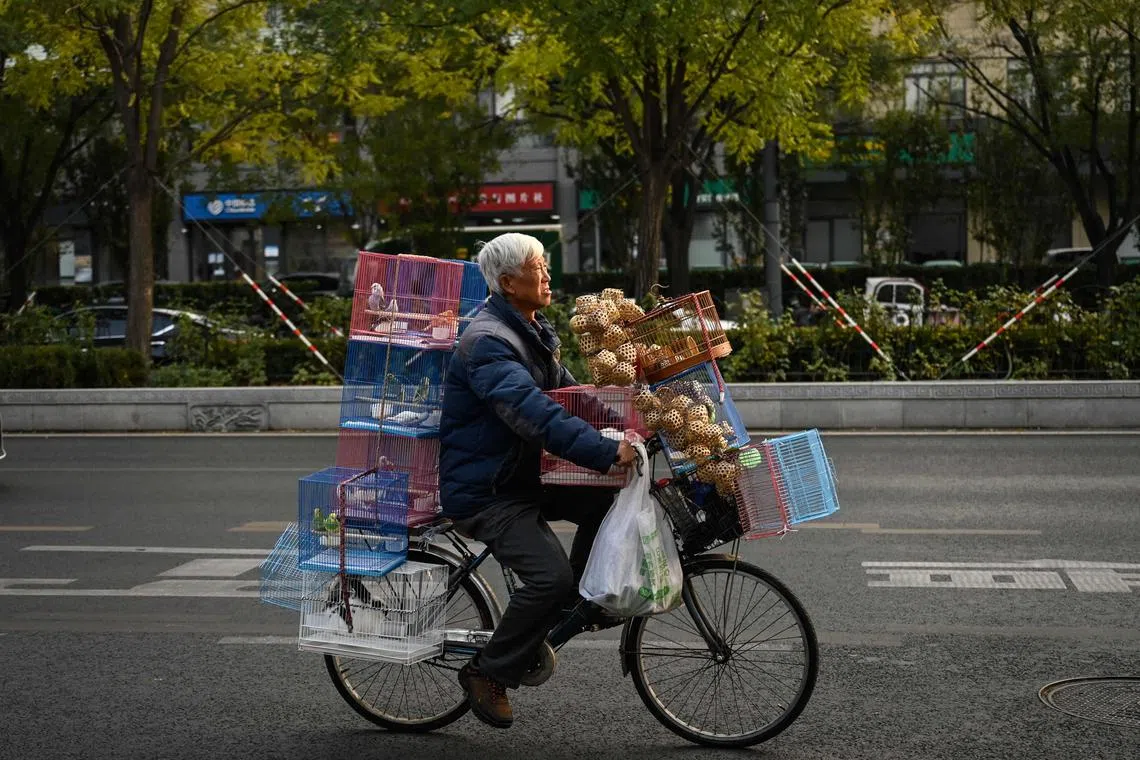China unveils plan for massive ‘silver economy’ to serve elderly people
Sign up now: Get ST's newsletters delivered to your inbox

Companies will be encouraged to tailor consumer products such as clothes, vehicles and food to the specific needs of older people.
PHOTO: AFP
SHANGHAI - China has rolled out a plan for a so-called “silver economy”, estimated to be worth trillions of US dollars, catering to a rapidly ageing population needing services ranging from meal delivery to nursing homes to entertainment options.
Beijing wants to mobilise state and private sector companies, it said in an outline released by the State Council. They will be encouraged to tailor consumer products such as clothes, vehicles and food to the specific needs of older people, the paper said. Smart devices and virtual reality are expected to fill labour shortages and improve the quality of eldercare, it added.
The silver economy will be worth an estimated 30 trillion yuan (S$5.7 trillion) in the next decade – accounting for 10 per cent of China’s overall total by 2035 – Beijing News reported this week, citing figures from a government think-tank.
Local governments will be able to issue special bonds to support silver economy development, while banks are encouraged to extend credit to elderly care facilities and businesses dedicated to facilitating the lives of senior citizens, the outline said. Ten silver economy industrial parks are planned for development in major cities.
A 1960s baby boom and subsequent decades-long single-child policy – meant to rein in population growth – have turned China into one of the world’s quickest-ageing populations. One in five of the mainland’s 1.4 billion people was aged 60 or above at the end of 2022 – with the ratio set to exceed 30 per cent in a decade, according to China’s National Health Commission.
Still, China has yet to develop a comprehensive infrastructure and service sector catering to its swelling ranks of older people. Some 90 per cent of its senior citizens spend their later years at home, rather than in aged care, state broadcaster CCTV reported. A meagre 3 per cent are now in nursing facilities, it said.
Compounding the problem: Many seniors have only one adult child, stretched thin by work and caring for families of their own, to look after their needs.
Premier Li Qiang pledged earlier in January to grow the country’s silver economy, saying that while the government will ensure the provision of basic services, it will ask companies and other organisations to serve the diverse needs of older people. BLOOMBERG


